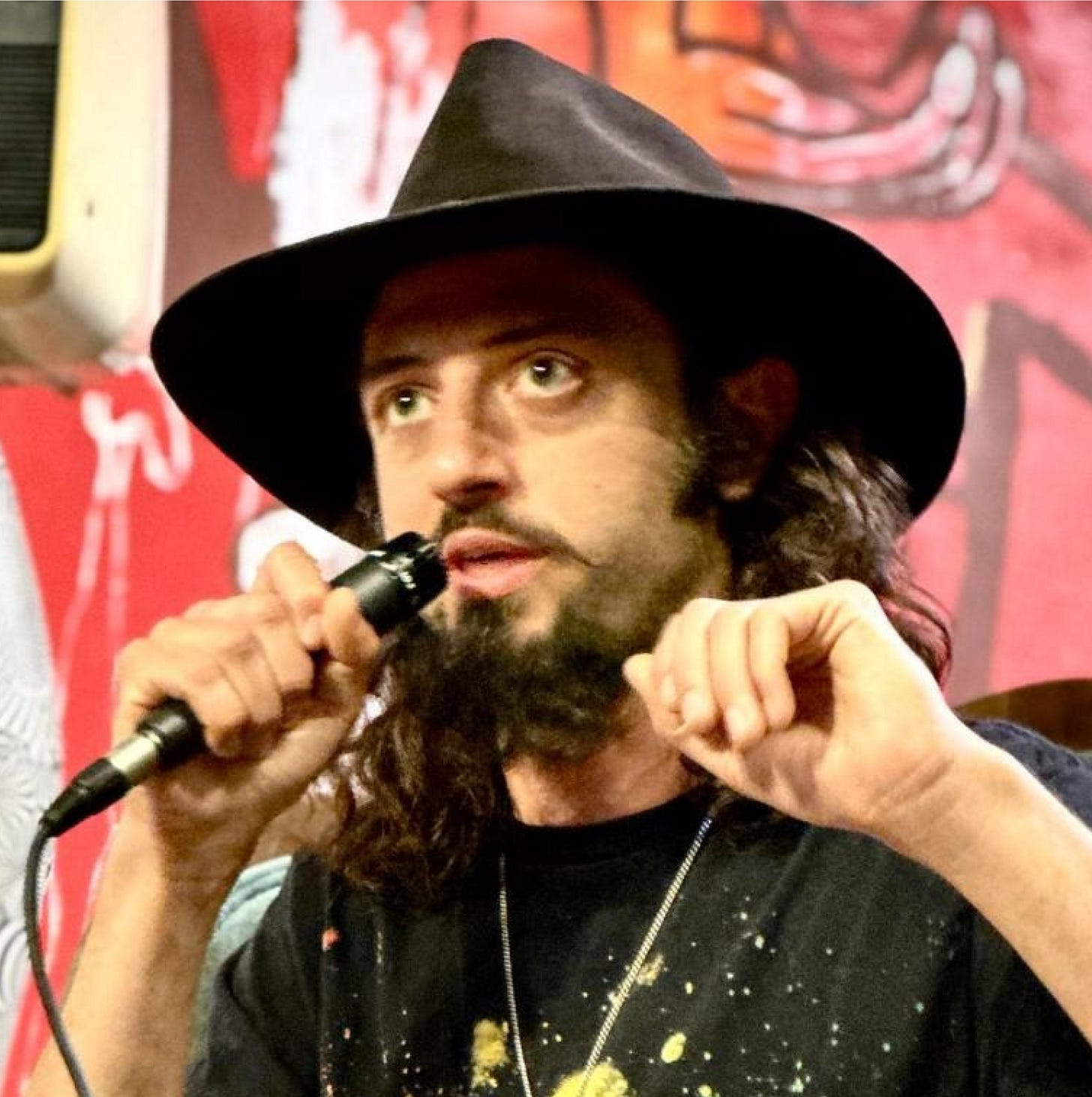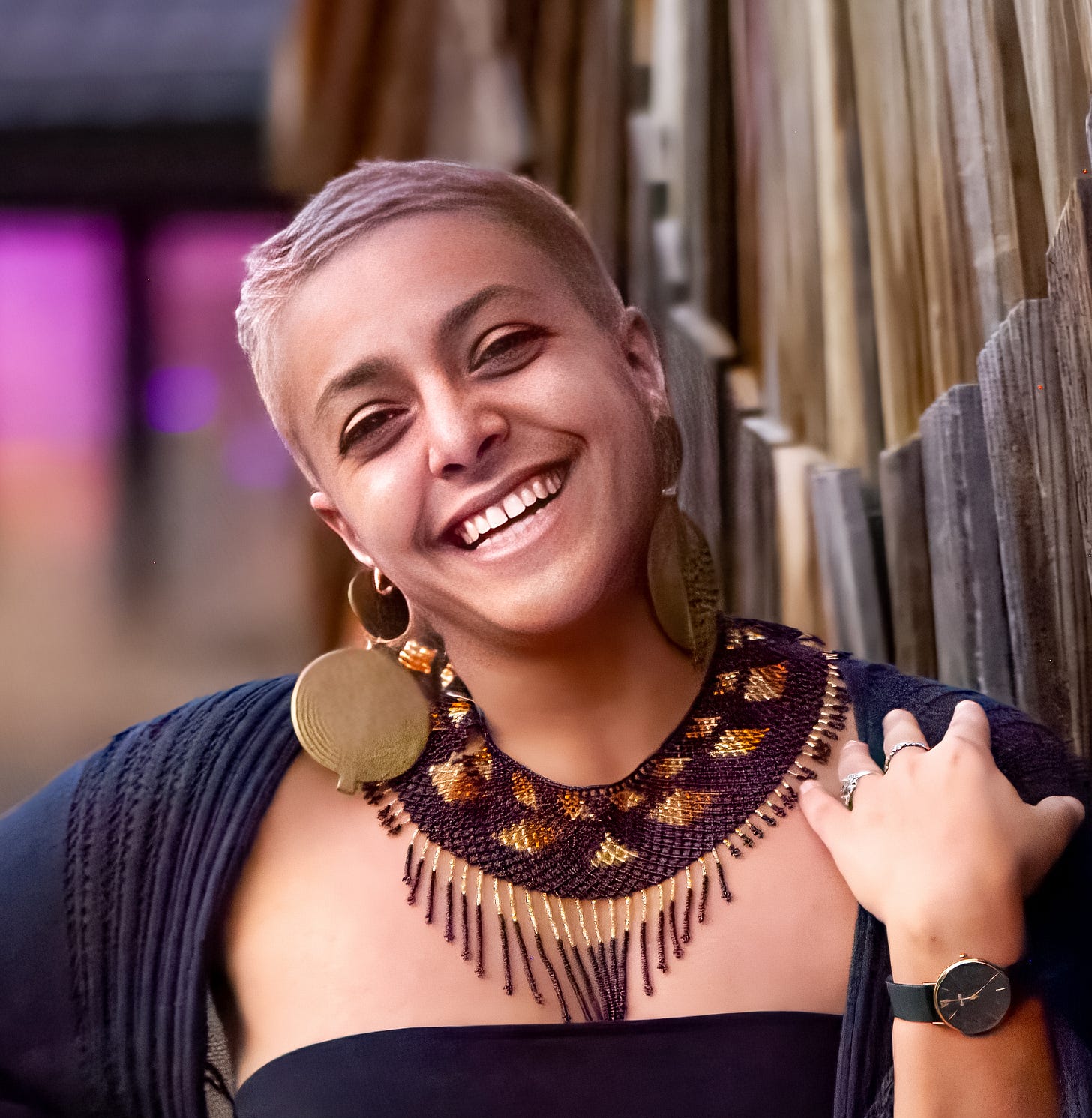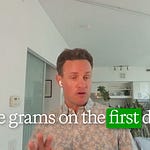Dear listeners,
For decades, psychedelics were taboo—demonized and pushed into the shadows by misguided policies. Though I began hosting radio programs on psychedelic science as early as 2005, at the time I felt largely alone in my advocacy.
Just before one of my shows, as my guest—medical anthropologist Marcia Rosenbaum—and I prepared to discuss harm reduction on-air, my producer looked up at me and said that the White House was on the line.
The White House? What could they want?
It turned out the Drug Czar himself wanted to argue against our stance. It was too late to include him as a panelist on the show, but he called in nonetheless. His interruption illustrated how desperately the government has clung to control of the narrative, monitoring even small forums, like my local public radio broadcast, for dissent.
Almost 20 years later, their grip is slipping. Prominent voices are coming out of the "psychedelic closet," recognizing these substances as tools for expanding human potential rather than threats.
The Global Psychedelic Society (GPS), a decentralized network connecting the leaders of Psychedelic Societies around the world to educate the public on benefits and risks of psychedelic medicines, promoting responsible use over fearmongering. I recently interviewed the Society’s founder, Mike Margolies, and Director, Jessica ‘Jaz’ Cadoch about the important work.
I’m excited to be partnering with the GPS, to bring visibility and resources to local psychedelic communities worldwide. I will be raising awareness about the fundraising efforts to provide training for community catalysts in this emerging space, and they will be connecting me with the dozens (if not hundreds) of global psychedelic societies across the globe as part of my comprehensive effort to document the potential adverse effects of psychedelic medicines. In my view, this is how we win the war—through community, transparency, and ultimately, cultural change.
Together we'll help people find the support I lacked when starting out. If you are likewise looking to “find the others,” please consider making a donation of the GPS Fund.
Golden light,
Dr. Richard L. Miller
Show notes:
Intro to Mind Body Health and Politics. (0:00)
Psychiatrists vs. Psychedelic Communities. (4:59)
How did Mike and Jaz get into psychedelic community activism? (11:00)
The problem with charging money for education. (20:26)
Dealing with burnout in the psychedelic space. (24:43)
The seven laws of money. (30:29)
Questions about the business model of the Psychedelic Association. (34:47)
Book on psychedelics and the adverse effects. (42:24)
Why are psychedelics banned in other countries? (46:16)
Jaz’s offer of help. (53:34)
How to get involved in politics (58:31)
Anyone can grow mushrooms in their house. (1:06:45)
Links and references:
A Global Shift: Regulation, Decriminalization and Cultural Change
The soul of the psychedelic societies movement is a belief in our right to change our consciousness—freely and safely. Though once taboo, psychedelics are now transforming medicine and culture. Some countries are even decriminalizing personal use while regulating medical access.
I saw glimmers of this openness firsthand on a trip to Israel many years ago with MAPS founder Rick Doblin. There, we met with top scientists and public figures, including Supreme Court members, who were interested in the potential to use MDMA for PTSD in their traumatized soldiers. Despite their keen interest, they feared retaliation from the United States if they didn't comply with our global War on Drugs. Racist policies from decades past still wield control, limiting access to healing.
Yet the pillars of science, medicine, and society are aligning. By coming out of hiding and raising our voices, we make truth and justice inevitable.
While psychedelics hold promise to heal individuals and society, some fear the movement's soul risks being lost to commercialization and controversy.
As Mike Margolies, co-founder of the Global Psychedelic Society, told me recently, "If I think about the psychedelic future that I want to see, what's the first touch point someone should have? I think it's in community."
Margolies is a psychedelic community catalyst and conversation creator, who has worked full-time in psychedelic education and community building since 2015, when he founded Psychedelic Seminars, an events and media platform for nuanced, open and honest conversations. On the PsychSems stage, he has interviewed and featured a range of leaders including Michael Pollan, Johns Hopkins researchers, advocates at MAPS, and more. Behind the scenes, Mike has started, led, and mentored several psychedelic community organizations and professional networks.
With knowledge and community, we can ensure psychedelic experiences are available to all who seek them for growth and healing.
Yet many psychedelic community builders remain under-resourced, struggling as martyrs to sustain their work.
Community Matters—But Requires Support
Jaz Cadoch is a cultural and medical anthropologist who has been studying the psychedelic movement since 2016, and is now directing the Global Psychedelic Society. She sees psychedelic societies as the "third prong" in shifting the narrative, complementing politics and medicine.
With a particular interest in the intermingling of conventional healing models and psychedelic-assisted therapy, Jaz is concerned with ensuring that psychedelic practices are carefully and ethically integrated into modern Western society and culture. She is also the co-founder of ALKEMI, a consulting firm for psychedelic ethics & accountability and contributed to the process of Colorado’s Proposition 122 - the Natural Medicine Health Act.
"Without legislation,” Jaz notes, “we can't start changing the narrative. Without clinical trials, people who are not psychedelically aware won't see the value of psychedelics.”
Likewise, culture shapes perceptions of legitimacy and safety.
Cadoch continues, "The way I see it is we have politics and medical research at the top level, changing the narrative from the top down, telling the people that these are safe. Then we have the cultural landscape, which to me is psychedelic societies, on the ground — the grassroots, catching everybody as they take their first psychedelic."
These societies offer community and education, filling a void left by prohibition and stigma.
These three pillars can overcome past propaganda by re-educating the public through sharing truths long obscured.
The diversity of these societies inspires. The underground mycelia are sprouting into visible, vibrant blooms. By nurturing networks both global and local, we can help others find their roots in sacred soil. But for this garden to thrive sustainably, its cultivators require resources and care.
Margolies urges, "If we really care about this community-building work and the importance of cultural shift, this work should be properly resourced."
Changing the culture, however, requires investment. As the psychedelic movement matures, more specialized roles are emerging—and experts in each must be paid for their service. Though once a niche realm of volunteers, community organizing now demands strategic thinking to empower rather than burn out its pioneers.
I learned this lesson firsthand, starting one of the first holistic addiction programs in the 1980s—Cokenders Alcohol & Drug Program. As both chief clinician and administrator, I was spread too thin. Administration alone was a full-time job; doing both risked compromising care. After 10 years, I realized true sustainability meant delegating to those with the proper expertise.
Funding the Renaissance
Today's psychedelic society organizers face similar challenges, wearing "multiple hats" out of necessity in an emerging field. Yet psychedelics are now “a growing ecosystem—and industry," as Cadoch notes.
While grassroots knowledge is one form of authority, professional qualifications still shape perceptions of legitimacy for many. As money and mainstream interest flow in, there is a risk of "business as usual" crowding out community focus if we're not careful about who does what.
As Margolies explains, "People are not primarily coming into this from the perspective of 'I want to start a business holding events about psychedelics,' but they're coming because there's a mission of education, culture shift, and community building."
The key is balancing this mission with viability. Seminars and events are not as profitable as pharmaceutical drug development. Smaller events may better serve community, yet require scale for success.
Charging attendees is one means of finding this balance, yet also risks compromising access or violating an ethos of open education.
"It's not only about education, but also cultural building," Cadoch says. "How do you charge people to build culture?"
The answer, it seems, lies in designated funds and partnerships.
Margolies urges, "We're doing a big educational and fundraising campaign to build awareness around the world that this is important work. It's more important than what a community builder can get just through revenue from ticket sales."
By donating to groups like the Global Psychedelic Society, which then distribute resources to local organizers, people can directly support the cultural shift they value.
Legalization vs. Decriminalization: Which Way Forward?
The path forward is complex, with decriminalization and legal regulation each holding promise and pitfalls.
Decriminalization means ending penalties for personal use and possession, while legalization creates regulated markets and access. The former protects communal use and grassroots operations, but risks diverting funds from public health measures. The latter can exclude those unable or unwilling to follow bureaucratic rules, perpetuating inequality.
As Mike Margolies explains, "I'm totally in support of having access through medical or regulated means. But for me, what's really important is that those don't become the exclusive pathways for access."
A "hybrid model" incorporating both may overcome these issues.
"Creating an environment where even regular individuals who don't understand psychedelics can feel safe is expanding access,” Cadoch says, “Expanding access to psychedelics isn't just about financial access, but also cultural access."
Margolies adds: "Through community building work, we can make decriminalized and unregulated models safe. There are many things to consider, but it can be done."
Regulation builds trust for the mainstream, while decriminalization protects traditional and informal practices.
However, legalization risks creating a "two-tiered model" with regulators targeting unlicensed operators.
"If you create a legal regulated model or medical model without also decriminalizing, you can end up in a scenario where there's regulated access, but people who are doing community healing ceremonies in a different way than the FDA's model could still be criminalized," Margolies warns.
I have seen a similar tension in conversations with sex workers advocating decriminalization over legalization. Regulations should aim to protect public health, not eliminate grassroots operations through "backdoor criminalization” that new laws often contain.
Support this Mission
Together, the pillars of science, medicine, and community will lift prohibition's crushing weight. But community requires nurture to stand strong—an ecosystem where each role is valued and each voice empowered to speak its truth. Only by investing in the wellbeing of organizers themselves can we cultivate a future of safe, legal and responsible access for all.
As this movement grows, it's crucial we discuss not only the promise but also the risks of psychedelics openly and honestly. I plan to address reports of adverse effects in an upcoming series, connecting with communities globally to explore how set, setting and even culture can impact experiences for better and for wore. We must build understanding of these powerful tools responsibly and avoid hype that glosses over potential dangers.
The interviews from this series will go into a forthcoming book on the topic—perhaps the first book its kind.
Please contact me if you would like to be interviewed.
I am honored to partner with the Global Psychedelic Society. Together, we will connect with local networks worldwide and share knowledge that has been hidden for far too long.


















Share this post